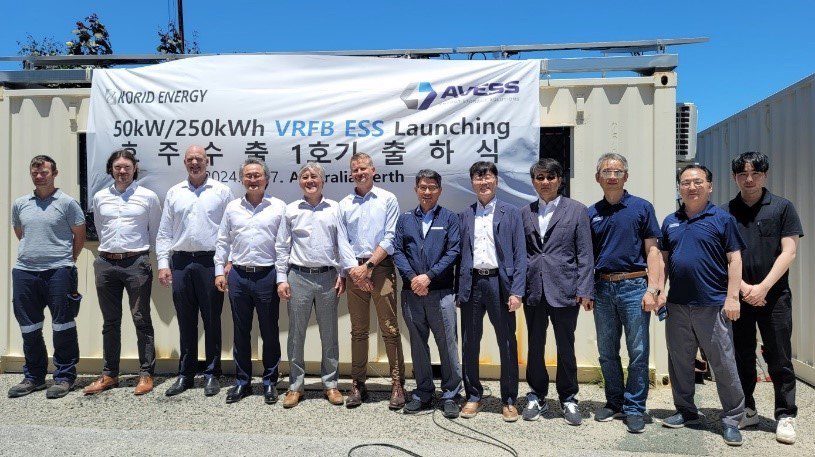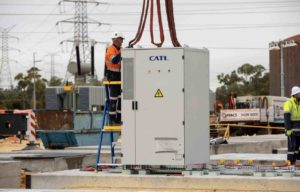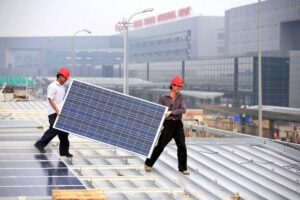Perth-based energy storage solutions hopeful Avess Energy has commissioned its first vanadium redox flow battery (VRFB), a storage system capable of charging and discharging at 50kW of power for up to five hours.
Avess Energy, founded in 2020 and headquartered in Perth, says the milestone commissioning of the battery in mid-January marks the first time a commercial-scale vanadium redox flow battery (VRFB, or VFB) has been built in Australia.
Australia’s first commercial vanadium-flow battery connected to a power system was in fact completed in mid-2023. However, as an Avess Energy spokesperson clarified via email, this was a system that used 75kW/220kWh modules that were imported from British manufacturer Invinity Energy Systems.
In comparison, Avess Energy’s uses modules from Korid Energy, a South Korean VRFB research & development company, majority owned (50%) by Avess.
Moreover, the 50kW modules were locally assembled by another Perth company, EPC provider Avora Energy while the module was designed by Continuum Engineering’s Gordon Fisher and Adrian Gatland. South Pacific Synergies director Joel Davey designed and programmed the battery’s power management system.
Delivery of core components for the battery was made in mid-2023, a key first step in Avess Energy’s plans to manufacture these batteries on Australian soil. And considering that vanadium flow batteries were first developed at the University of New South Wales in the 1980s, this marks a significant step in the development of an special Australian battery technology.
“Our successful commissioning was a great exercise, and we are now more confident than ever in our capability to assemble VRFB technology locally, and progress towards manufacturing our batteries on Australian soil,” said Young Yu, managing director of Avess Energy.
“We began this process 12 months ago. Today, we have Australia’s first commercial-scale class VRFB, which is now operational and capable of charging and discharging at 50kW of power for up to 5 hours.
“Importantly, we have collected plenty of data to optimise the current system and refine future designs. Our next step is to secure a commercial demonstration for this battery in the mining sector to leverage our successful Carbon Innovations Grant Program application.”










